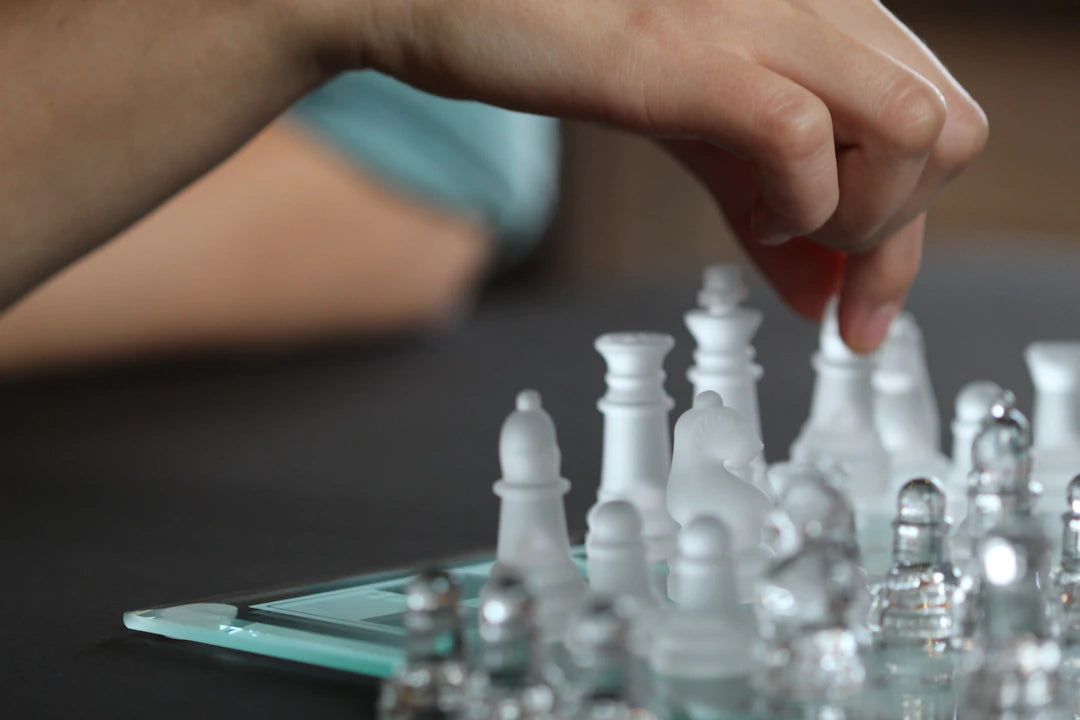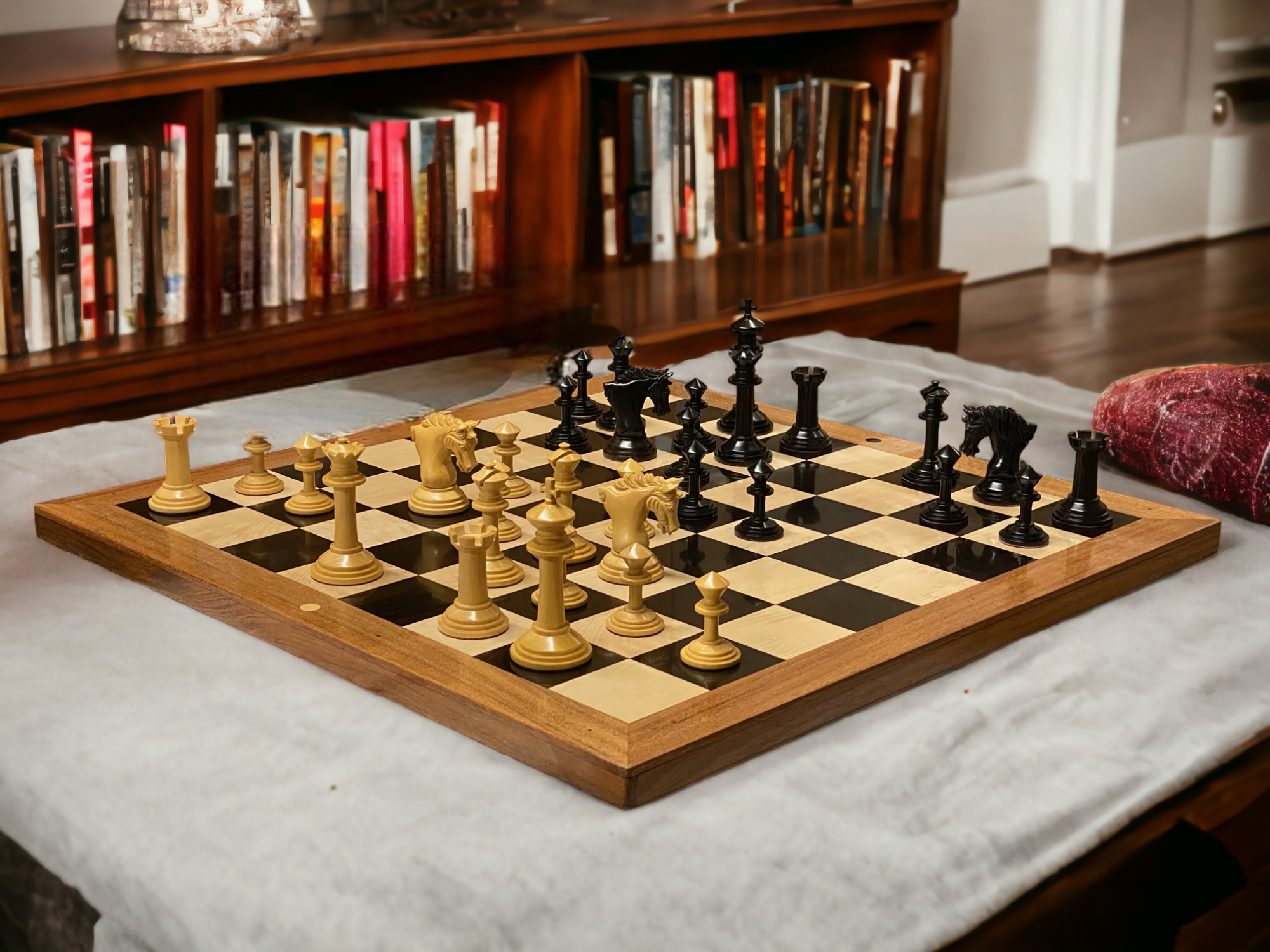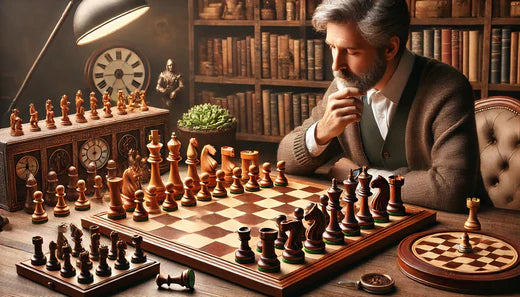Chess is one of the most esteemed games in the world, cherished for its strategic depth and intellectual challenge. However, it’s not just about mastering strategies and tactics; it’s also about navigating the intricate world of chess etiquette. Whether you're playing with friends, entering a tournament, or sitting down at a casual game café, understanding the do's and don'ts of chess etiquette can enhance your experience and that of your opponents. In this guide, we’ll explore the essential aspects of chess etiquette while embracing the rich tradition associated with elements like beautiful Redwood chess pieces.
The Importance of Chess Etiquette
Chess etiquette is about showing respect, promoting good sportsmanship, and ensuring that players feel comfortable and engaged. In the heat of the moment, emotions may run high, but adhering to proper etiquette will help maintain the integrity of the game. Here, we'll break down the essential do's and don'ts to enhance your playing experience.
The Do's of Chess Etiquette
1. Do Arrive Prepared
Whether you’re a seasoned chess player or a newcomer, arriving with the right mindset and equipment is crucial. Bring your own set of Redwood chess pieces if you prefer, as this shows professionalism and respect for your opponent. Make sure you have a chessboard and a clock, if needed, to facilitate smooth gameplay.
2. Do Familiarise Yourself with the Rules
Before sitting down, ensure you understand the rules of chess, including how each piece moves and the game’s overall objectives. If you are participating in a formal tournament, be well-versed in any specific rules or guidelines set by the organisers. Respect for the game is a fundamental part of chess etiquette.
3. Do Respect Your Opponent's Space
While playing, be mindful of your opponent's personal space. Sit comfortably at a distance that allows both players to engage with the board without feeling cramped. This respect fosters a more enjoyable atmosphere for both parties.
4. Do Offer a Handshake
At the beginning and end of the game, it is customary to shake hands with your opponent. This simple gesture demonstrates sportsmanship and respect, regardless of the outcome of the game.
5. Do Communicate Clearly
If you have questions regarding the game or rules, politely ask your opponent. Clear communication helps prevent misunderstandings and ensures that both players are on the same page. Respect their responses, and don’t hesitate to help if they inquire about your moves.
6. Do Maintain Focus
Chess is a game of concentration. When it’s your turn to play, avoid distractions and focus entirely on the game. Turn off your phone or place it on silent to respect both your time and your opponent’s. If the game is in a quiet environment, maintain that tranquility to allow both players to think clearly.
7. Do Acknowledge Good Moves
If your opponent makes a particularly strong move, acknowledge it. Complimenting a well-played strategy not only boosts morale but also fosters goodwill between players. Chess is, after all, about intellectual battle and mutual respect.
8. Do Learn from Every Game
Regardless of winning or losing, approach every match as a learning experience. Analyzing your gameplay and that of your opponent can provide insight into new strategies and enhance your skills. This growth mindset is not only respectful to the game but also beneficial in the long term.
The Don'ts of Chess Etiquette
1. Don’t Rush Your Opponent
Chess is a game that demands time for thought and reflection. Avoid rushing your opponent, as this can lead to frustration and negatively impact their performance. Allow enough time for them to consider their moves, especially in serious matches.
2. Don’t Engage in Distracting Behaviours
Things like tapping your fingers, playing with your pieces, or using your phone during a game can distract your opponent. Maintain a sense of decorum and try to stay engaged and focused on the game. It shows respect for both the opponent and the sanctity of chess itself.
3. Don’t Discuss Previous Moves
Once a move has been made and the pieces have been set, do not dwell on past actions. Avoid discussing moves that have already been played, especially if it’s to criticise or argue. This can create a negative environment and hinder the game’s flow.
4. Don’t Show Frustration
Chess can be an emotional game, especially when the stakes are high. However, expressing frustration or anger can ruin the atmosphere. Maintain composure, regardless of the position of the game, and remember that it is just a match, win or lose.
5. Don’t Disrespect Your Opponent
Regardless of skill level, every player deserves respect. Avoid making condescending comments or jokes about your opponent’s abilities. This kind of behaviour can severely affect morale and create an unpleasant game environment.
6. Don’t Interrupt
If your opponent is contemplating a move, refrain from distracting them with chatter. Allow them their space and time to think. Engaging in dialogue while they’re processing can be seen as disrespectful and can disrupt their strategy.
7. Don’t Play for Time
While the clock can be an integral part of timed matches, playing solely to win by time without making meaningful moves can be frowned upon. Aim for quality gameplay rather than aiming to outlast your opponent unfairly.
8. Don’t Be Dismissive of the Game
Chess is a game that commands respect. Avoid treating it lightly or showing disinterest, even if you are playing casually. Such attitudes can be disheartening for opponents and diminish the overall experience of the game.
Additional Tips for Playing in Tournaments
Tournaments often have their own unique set of etiquette rules that players should adhere to. These guidelines may differ from casual play, so here are some additional points to keep in mind:
1. Know the Tournament Rules
Before participating, make sure to read through any provided materials related to tournament regulations. Familiarising yourself with the specific guidelines ensures that you comply with the expectations set by the organisers.
2. Arrive Early
Plan to arrive at the venue with ample time for registration and preparation. Arriving early allows you to settle in, practice if needed, and avoid unnecessary stress from rushing.
3. Respect the Match Schedule
Follow the scheduled times for your matches closely. If your table is called, approach it promptly to avoid keeping others waiting. Timeliness reflects professionalism and respect for the tournament’s structure.
4. Report Results Promptly
After your match concludes, make sure to report your results to the tournament officials as soon as possible. This process ensures that future rounds are scheduled efficiently and allows the tournament to run smoothly.
5. Stay Engaged with Other Players
During breaks or downtime, engage respectfully with fellow participants. Sharing experiences and discussing matches can create a sense of community and camaraderie, further enriching the tournament experience.
The Beautiful Connection: Chess and Craftsmanship
The elegance of chess transcends just the strategies and matches played. The craftsmanship of chess pieces, particularly those of exquisite Redwood chess pieces, elevates the experience. These pieces not only serve as tools for play but as works of art. Their rich wood grain, smooth finish, and thoughtful design enhance the appreciation of the game while in play.
Investing in a beautiful set of chess pieces can transform your games at home or during tournaments, making every game feel special. Respecting these pieces, just as players respect each other, is paramount. Care for your chess set by ensuring it’s stored properly and treated with the reverence it deserves. Just as etiquette dictates behaviour towards opponents, it similarly extends to the care of the equipment that enriches the game.
Embrace the Chess Journey
As you venture into the world of chess, both in casual games and competitive play, remember that etiquette matters. The do's and don'ts serve not just as a checklist but as guiding principles for ensuring respect, focus, and enjoyment. With these guidelines in mind, you are equipped to navigate the chessboard with confidence and integrity, celebrating not only your victories but also the art and culture woven into this timeless game. So grab your favourite set, perhaps even a finely crafted set of Redwood chess pieces, and immerse yourself in the enriching world of chess!



